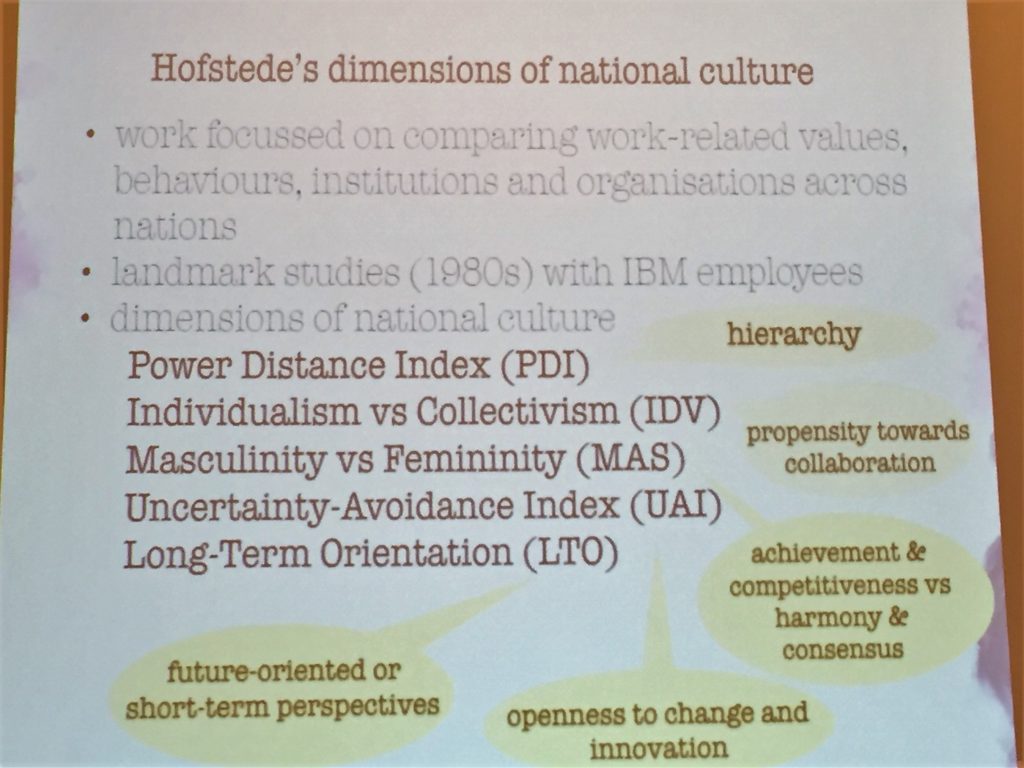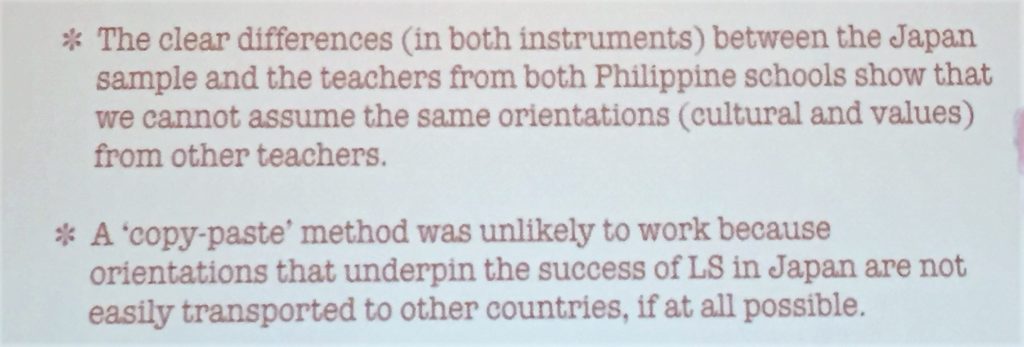
Heute, am dritten und letzten Tag an der AERA, standen bei mir zwei Sessions auf dem Programm:
- Teacher Discussions of Problems of Practice: Conceptualizing and Investigating „Productive“ Pedagogical Discourse
- Reflections on Teachers as Learners: Selective Attention, In-the-Moment Decisions, Affect, and Culture
Bei der ersten war ich selber aktiv und bei die zweite besuchte ich aus Interesse.
Ad 1) Teacher Discussions of Problems of Practice: Conceptualizing and Investigating „Productive“ Pedagogical Discourse
Diese strukturierte Postesession wurde von Aliza Segal von der Ben Gurion Universität aus Israel einberufen.
While most scholars agree that discussions of problems of practice in school-based professional communities are potentially beneficial, we lack a shared understanding of what are the key ingredients that make such talk productive. Likewise, we lack a common language to describe such talk, and a common set of research tools to capture, analyze and eventually measure it. This interactive poster session will bring together scholars from Canada, Israel, the Netherlands, Switzerland, and the United States to look critically at the different ways of theorizing productive talk, and of the concomitant methodologies for studying it. Papers include analyses of representations of practices in teacher talk, leadership and facilitation, methodological issues around coding and measurement, and particular models and practices.
Unser Poster war dort gut platziert und es ergab sich eine lebhafte Diskussion, was unter produktiven, pädagogischen Diskursen zu verstehen sei. Judith Little Warren war als Diskutantin vor Ort.
Wie immer bei solchen Veranstaltungen ist man vor allem damit beschäftigt, die eigene Arbeit vorzustellen und die Zeit fehlt leider, um die anderen wirklich gebührend zu studieren und zu würdigen…
Wen das Poster interessiert: Et voilà ! Das Paper zum Poster kann gerne bei mir angefordert werden.
Zum Weiterlesen auf den Button klicken!
Ad 2) Reflections on Teachers as Learners: Selective Attention, In-the-Moment Decisions, Affect, and Culture
Die zweite Session, die ich besuchte, drehte sich rund um das Thema „Reflexion“:
This symposium involves reflections on four interconnected aspects of teacher learning: teacher selective attention, sense-making, affect, and cultural underpinnings. The four reported studies offer insights into teacher learning as a situated and cyclic process of attention, interpretation, decision, and action, punctuated and fueled by periods of reflection that have affective associations, and which is culturally embedded. The studies provide possible points of interventions for facilitating teacher learning, which include the objects to which teachers pay attention and attach meaning; teacher interpretation of classroom experiences; affective response during video-viewing; and the cultural orientations of professional development programs. In combination, the four presentations offer different approaches to the investigation of how teacher learning can be best promoted.
Bei den vorgestellten vier Papers hat mich vor allem das letzte angesprochen. Es stand die Frage im Zentrum, wie ein erprobtes System (Lesson Study) auf einen anderen Kulturkreis übertragen werden konnte (konkret von Japan auf die Philippinen).
Having been a permanent fixture in the Japanese school system for more than a century, Lesson Study (LS) is believed to have played an important role in Japan’s consistently high performance in international education surveys (Stigler & Hiebert, 1999). As such, LS is perhaps internationally the most consistently successful program for promoting teacher learning.
Dieser kulturelle Wechsel wurde mittels zweier Instrumente untersucht:
Two instruments, the Values Survey Module for Teachers 2012 (VSMT12), adapted from the Values Survey Module 2008 (Hofstede, Hofstede, & Minkov, 2010), and the Mathematics Teachers‘ Perceptions of a Good Mathematics Lesson (MTPGML), designed by the author, were used to anticipate cultural barriers, potential sources of tension, and/or affordances in implementing LS in the two schools.

Hier die Conclusions:

Eine einfache Übertragung funktioniert also nicht; interessanterweise ergaben sich aber auch Unterschiede zwischen den beiden philippinischen Schulen. Es gilt also auch innerhalb desselben Kulturkreises, dass eine Übertragung nicht per „copy-paste“ möglich ist.
